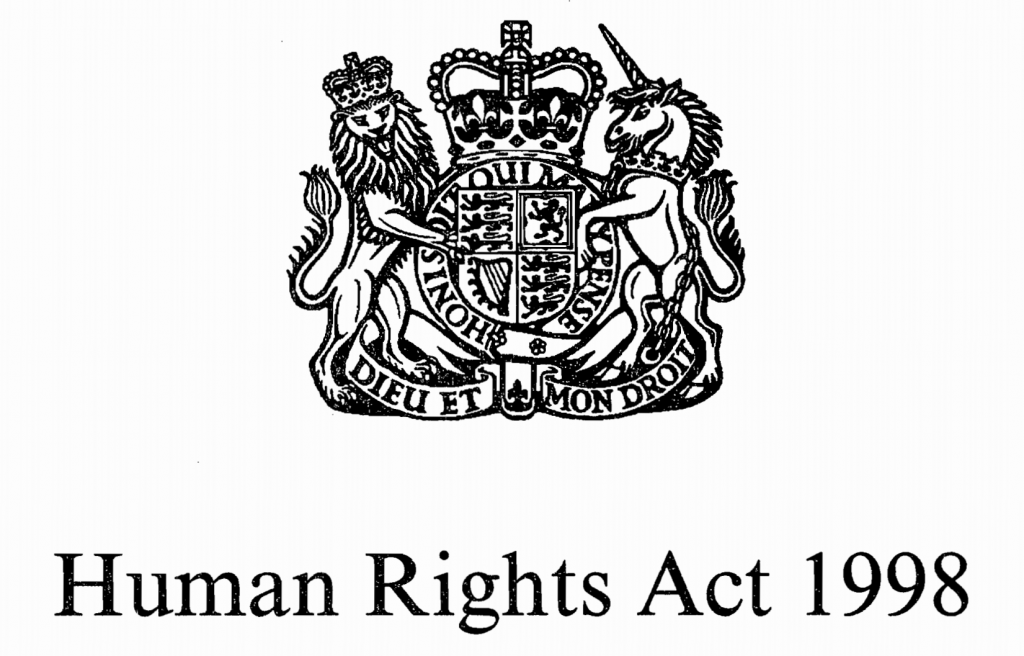The Belfast Agreement in 1998 contained a comprehensive suite of human rights safeguards. These include the introduction of the European Convention on Human Rights (ECHR) to be accessible in Northern Ireland courts, establishment of the Northern Ireland Human Rights Commission, consultation by the Commission on any additional rights supplementary to the ECHR to constitute a Bill of Rights and prohibition of the Northern Ireland Assembly to legislate in any way contrary to the ECHR or any Bill of Rights.
The Human Rights Act
The Human Rights Act 1998 (HRA) brings the substantive articles of the ECHR into UK law, which means the rights contained therein can be directly evoked in UK courts. The Act places a duty on public bodies not to act in contravention of the ECHR.
Human Rights and the Northern Ireland Assembly
The Northern Ireland Act 1998 sets out the legislative competence of the Northern Ireland Assembly and states that the Assembly may not legislate in a manner that conflicts with the ECHR. The passage of a Bill through the Assembly therefore has a series of checks for human rights compliance and for legislative competence, which incorporates human rights standards:
- Prior to introduction, by the sponsoring Minister;
- Prior to First Stage, by the Speaker;
- On introduction, a copy is sent to the Human Rights Commission, which may comment or be asked to comment on human rights compliance;
- Prior to Final Stage, by the Speaker;
- Prior to Royal Assent, by the Secretary of State; and
- The Attorney General may also refer the Bill to the Supreme Court when passed.
‘Convention rights’, meaning the rights contained within the ECHR, are explicit in the Northern Ireland Act. The Act also refers to an obligation on the Secretary of State to ensure that actions are not taken by a Northern Ireland Minister or Acts passed by the Northern Ireland Assembly to be given Royal assent if they are contrary to the ‘international obligations’ of the UK, which may include other human rights instruments ratified by the UK.
Bill of Rights for Northern Ireland
The Human Rights Commission first consulted on a potential Bill of Rights in 2001. Following the St Andrews Agreement in 2006, a cross-party, cross-sectoral Bill of Rights Forum met and published its report on a potential Bill of Rights in March 2008. The Human Rights Commission published its advice to government in December of that year and in November 2009 a government response outlining potential additional rights and considerations for Northern Ireland was published for consultation. There has been no significant movement on the issue since then.
Repeal of the HRA and a ‘UK Bill of Rights’
In 2011, the UK Government established a Commission on a Bill of Rights, which considered a range of options, including repealing the HRA and replacing it with a Bill of Rights. The Commission did not agree on an outcome, but a majority was in favour of reform. Advisory panels from Wales and Scotland were opposed to repealing the Act (Northern Ireland did not appoint a panel), but the Commission’s conclusions stated that there would be no interference with any Northern Ireland Bill of Rights process.
Arguments for reform or repeal presented by the Minister of Justice to the Lords in February 2016 included:
- Labour Government legislation from 1997 onwards is being revisited and revised;
- Human rights have developed a ‘bad name’ with the public;
- The HRA pays too much deference to the European Court of Human Rights;
- UK courts and the UK Parliament should take precedence over the European Court; and
- There could be more balance between absolute rights and public interest.
What would happen in Northern Ireland if the HRA were repealed?
Any reform of the human rights legislation in the UK may have impacts on obligations under the Belfast Agreement. Points for consideration might be:
- If the HRA were repealed, how might Convention rights remain accessible in courts in Northern Ireland?
- If there were a UK Bill of Rights, would Northern Ireland be included, or have a separate Bill of Rights?
There has been no report of any intention to remove the Convention rights obligations from the Northern Ireland Act.

